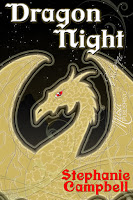So without further ado, I want to post links to young adult authors who broke-out this past year. If any of you received an ereader as a gift, please check out these talented writers and their books. You may just find a new author to follow for years to come.
Arley Cole:http://www.musapublishing.com/index.php?main_page=product_info&cPath=5&products_id=14
Linda Benson: http://www.musapublishing.com/index.php?main_page=product_info&cPath=5&products_id=78
Stephanie Campbell: http://www.musapublishing.com/index.php?main_page=product_info&cPath=5&products_id=15
Cornell DeVille: http://www.musapublishing.com/index.php?main_page=product_info&cPath=5&products_id=91
L.K. Mitchell: http://www.musapublishing.com/index.php?main_page=product_info&cPath=5&products_id=148
Mandy Hardwick: http://www.musapublishing.com/index.php?main_page=product_info&cPath=5&products_id=120
Amaleen Ison: http://www.musapublishing.com/index.php?main_page=product_info&cPath=5&products_id=162
Kevin Craig: http://www.kevintcraig.com/
Sandra Clarke: http://sjclarke.com/books/series-books/
S.G. Rogers: http://www.amazon.com/Last-Great-Wizard-Yden-ebook/dp/B005VEKS5M/ref=sr_1_1?ie=UTF8&qid=1318697514&sr=8-1
Image: 123rf Stock photo 11529216










